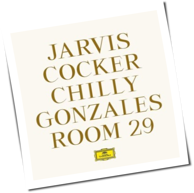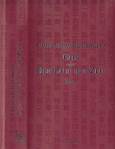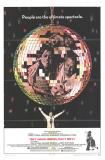Wenn ein Millionenheer von Flüchtlingen zu Gast ist bei der reichen Frau (XIII): Frank Sinatra über Integration: The House I Live In - Irgendwo auf der Welt
Ein Beitrag des großen Frank Sinatra zur aktuellen Integrationsdebatte (wenn man das, was hier läuft, denn so nennen möchte):
"The House I Live In" was a 1945 short film written by Albert Maltz and made by producer Frank Ross and actor Frank Sinatra, words by Lewis Allan to oppose anti-Semitism and prejudice at the end of World War II.
The Song was written by Abel Meeropol. (Archäologie CCXLXIII : Abel Meeropol "Strange Fruit". Geschichte eines Liedes)
Diese Seite des Francis Albert Sinatra kannte ich bisher nicht! Toll: So habe ich ihn noch nie gesehen ...
Wie man stilvoll einen Staatssender abschaltet (II): No More Pomp and Circumstance
Auch in der deutschen populären Musik kann man diese konkrete Utopie finden:
View on YouTube
Comedian Harmonists 1997 Edited Version
+ Lilian Harvey - Irgendwo auf der Welt
+ Die Prinzen & Udo Lindenberg - Irgendwo auf der Welt
+ Nina Hagen - Irgendwo auf der Welt & Happiness (Key Club)
"Irgendwo auf der Welt" (1932) is one of the most popular songs by the German 1920s and 1930s sextet, the Comedian Harmonists. The music is by Werner Richard Heymann, the lyrics by Robert Gilbert. It voices a sentimental longing for a yet undiscovered place where peace of mind and true happiness can be found.
Nehmen wir mal an, das war nicht nur für deutsche Staatsbürger gemeint ....
"The House I Live In" was a 1945 short film written by Albert Maltz and made by producer Frank Ross and actor Frank Sinatra, words by Lewis Allan to oppose anti-Semitism and prejudice at the end of World War II.
The Song was written by Abel Meeropol. (Archäologie CCXLXIII : Abel Meeropol "Strange Fruit". Geschichte eines Liedes)
Diese Seite des Francis Albert Sinatra kannte ich bisher nicht! Toll: So habe ich ihn noch nie gesehen ...
- What is America to me?
A name, a map, or a flag I see?
A certain word, "democracy"?
What is America to me?
The house I live in, a plot of earth, a street
The grocer and the butcher, and the people that I meet
The children in the playground, the faces that I see
All races and religions, that's America to me
The place I work in, the worker by my side
The little town or city where my people lived and died
The "howdy" and the handshake, the air of feeling free
And the right to speak my mind out, that's America to me
The things I see about me, the big things and the small
The little corner newsstand and the house a mile tall
The wedding in the churchyard, the laughter and the tears
The dream that's been a-growin' for a hundred and fifty years
The town I live in, the street, the house, the room
The pavement of the city, or a garden all in bloom
The church, the school, the clubhouse, the millions lights I see
But especially the people
That's America to me
Wie man stilvoll einen Staatssender abschaltet (II): No More Pomp and Circumstance
Auch in der deutschen populären Musik kann man diese konkrete Utopie finden:
View on YouTube
Comedian Harmonists 1997 Edited Version
+ Lilian Harvey - Irgendwo auf der Welt
+ Die Prinzen & Udo Lindenberg - Irgendwo auf der Welt
+ Nina Hagen - Irgendwo auf der Welt & Happiness (Key Club)
"Irgendwo auf der Welt" (1932) is one of the most popular songs by the German 1920s and 1930s sextet, the Comedian Harmonists. The music is by Werner Richard Heymann, the lyrics by Robert Gilbert. It voices a sentimental longing for a yet undiscovered place where peace of mind and true happiness can be found.
Nehmen wir mal an, das war nicht nur für deutsche Staatsbürger gemeint ....
gebattmer - 2015/12/23 21:56



























































Trackback URL:
https://gebattmer.twoday.net/stories/1022527215/modTrackback